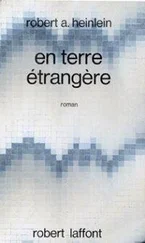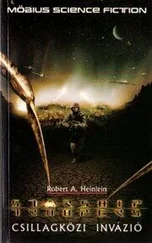Robert Heinlein - Beyond This Horizon
Здесь есть возможность читать онлайн «Robert Heinlein - Beyond This Horizon» весь текст электронной книги совершенно бесплатно (целиком полную версию без сокращений). В некоторых случаях можно слушать аудио, скачать через торрент в формате fb2 и присутствует краткое содержание. Жанр: Фантастика и фэнтези, на английском языке. Описание произведения, (предисловие) а так же отзывы посетителей доступны на портале библиотеки ЛибКат.
- Название:Beyond This Horizon
- Автор:
- Жанр:
- Год:неизвестен
- ISBN:нет данных
- Рейтинг книги:4 / 5. Голосов: 1
-
Избранное:Добавить в избранное
- Отзывы:
-
Ваша оценка:
- 80
- 1
- 2
- 3
- 4
- 5
Beyond This Horizon: краткое содержание, описание и аннотация
Предлагаем к чтению аннотацию, описание, краткое содержание или предисловие (зависит от того, что написал сам автор книги «Beyond This Horizon»). Если вы не нашли необходимую информацию о книге — напишите в комментариях, мы постараемся отыскать её.
Beyond This Horizon — читать онлайн бесплатно полную книгу (весь текст) целиком
Ниже представлен текст книги, разбитый по страницам. Система сохранения места последней прочитанной страницы, позволяет с удобством читать онлайн бесплатно книгу «Beyond This Horizon», без необходимости каждый раз заново искать на чём Вы остановились. Поставьте закладку, и сможете в любой момент перейти на страницу, на которой закончили чтение.
Интервал:
Закладка:
Felix scratched Theobald between the shoulder blades- that awkward spot-and reflected to himself how catlike the child was in many ways, even to the sybaritic way in which he accepted this small sensuous pleasure. Just now it suited him to be petted; a moment later he might be as haughty and distant as a Persian torn. Or he might decide to cuddle.
Then Felix lay on his stomach, Theobald straddled his back and returned the favor. Felix was beginning to feel rather catlike himself-it felt so good!-when he began to be aware of a curious and almost inexplicable phenomenon.
When one human monkey does another the great service of scratching him, delightful as it is, it never quite hits the spot. With infuriating obtuseness, despite the most careful coaching, the scratcher will scratch just above, just below, all around the right spot, but never, never, never quite on it, until, in sheer frustration, the scratchee will nearly dislocate his shoulder going after it for himself.
Felix was giving Theobald no instructions; in fact, he was nearly falling asleep under the warm relaxing ecstasy of his son's ministrations, when he suddenly snapped to attention.
Theobald was scratching where Felix itched.
The exact spot. An area of sensation had only to show up for him to pounce on it and scratch it out of existence.
This was another matter that had to be taken up with Phyllis. He got up and explained to her what had happened, attempting the meanwhile to keep it from the child's attention by suggesting that he go for a run down the beach-"But don't go in more than ankle deep."
"Just try him," he added, when he had told her of it. "He can do it. He really can."
"I'd like to," she said. "But I can't. I'm sorry to say that I am still fresh and clean and free from vulgar distresses."
"Phyllis-"
"Yes, Felix?"
"What kind of a person can scratch where another person itches?"
"An angel."
"No, seriously."
"You tell me."
"You know as well as I do. That kid's a telepath!"
They both looked down the beach at a small, skinny, busy silhouette. "I know how the hen felt that hatched the ducks," said Phyllis softly. She got quickly to her feet. "I'm going in and get some salt on me, and let it dry. I've got to find out about this."
CHAPTER FIFTEEN
"Probably a blind alley-"
HAMILTON FELIX took his son into the city the next day. There were men attached to the Great Research who knew much more about such things than either he or Phyllis; he wished them to examine the boy. He took Theobald to his office, supplied him with a scroll and a reader, a dodge that would tie him to one spot almost as effectively as if he were chained down, and called Jacobstein Ray by telephone. Jacobstein was in charge of a team investigating telepathy and related phenomena.
He explained to Jake that he was unable to leave his own office at the moment. Could Jake drop over, or was he tied up? Jake could and would; he arrived a few minutes later. The two men stepped into an adjoining room, out of earshot of the child. Felix explained what had taken place on the beach and suggested that Jake look into it.
Jake was willing and interested. "But don't expect too much from it," he cautioned. "We've demonstrated telepathy in young children time and again, under circumstances which made it a statistical certainty that they were receiving information by no known physical means. But there was never any control in the business, the child was never able to explain what was going on, and the ability faded away to nothing as the child grew up and became more coherent. It seems to shrivel away just like the thymus gland."
Hamilton looked alert. "Thymus gland? Any correlation?"
"Why, no. I just used that as a figure of speech."
"Mightn't there be?"
"It seems most unlikely."
"Everything about this business seems most unlikely. How about putting a crew on it? A good biostatician and one of your operators?"
"I will if you wish."
"Good. I'll stat an open voucher to your office. It's probably a blind alley, but you never know!"
Let us add that it was a blind alley. Nothing ever came of it, but a slight addition to the enormous mass of negative information constituting the main body of scientific knowledge.
Felix and Jake went back into the room where Theobald sat reading. They seated themselves first, in order to be on the same level as the child, and Felix performed the introduction with proper attention to the enormous and vulnerable dignity of a child. He then said:
"Look, sport, Dad wants you to go with Jake and help him with some things for an hour or so. How about it?"
"Why?"
That was a tough one. With less-than-adult minds it had been found to be optimum procedure to keep them from knowing the purpose of the experimentation. "Jake wants to find out some things about the way your mind works. He'll talk with you about it. Well... will you help him?"
Theobald thought about it.
"It will be a favor to Dad." Phyllis could have warned him against that approach. Theobald had been rather slow in reaching the degree of social integration necessary to appreciate the cool pleasure of conferring benefits on others.
"Will you do me a favor?" he countered.
"What do you want?"
"A flop-eared buck." The boy had been raising rabbits, with some adult assistance; but his grandiose plans, if unchecked, would have resulted in their entire home being given over to fat, furry rodents. Nevertheless, Hamilton was somewhat relieved to find the favor desired was no larger.
"Sure thing, sport. You could have had one anyhow."
Theobald made no answer, but stood up, signifying his willingness to get on with it.
After they had gone Hamilton considered the matter for a moment. A new buck rabbit was all right; he did not mind that as much as he would have minded a new doe. But something had to be done fairly soon, or else his garden would have to be abandoned.
Theobald seemed to be working out, with the busy and wholehearted collaboration of his rabbits, an interesting but entirely erroneous neo-Mendelian concept of inherited characteristics. Why, he wanted to know, did white bunnies sometimes have brown babies? Felix pointed out that a brown buck had figured in the matter, but soon bogged down, and turned the matter over to Mordan-accepting as inevitable the loss of face involved. Theobald, he knew, was quite capable now of being interested in the get of a flop-eared buck.
The boy had formulated an interesting, but decidedly specialized, arithmetic to keep his records of rabbits, based on the proposition that one plus one equals at least five. Hamilton had discovered it by finding symbols in the boy's rabbit note book with which he was unfamiliar. Theobald boredly interpreted them for him.
Hamilton showed the records to Monroe-Alpha the next time Monroe-Alpha and Marion showed up at his home. He had regarded it as an amusing and insignificant joke, but Clifford took it with his usual dead seriousness. "Isn't it about time you started him on arithmetic?"
"Why, I don't think so. He is a little young for it-he's hardly well into mathematical analysis." Theobald had been led into mathematical symbology by the conventional route of generalized geometry, analysis, and the calculi. Naturally, he had not been confronted with the tedious, inane, and specialized mnemonics of practical arithmetic-he was hardly more than a baby.
"I don't think he is too young for it. I had devised a substitute for positional notation when I was about his age. I imagine he can take it, if you don't ask him to memorize operation tables." Monroe-Alpha was unaware that the child had an eidetic memory and Hamilton passed the matter by. He had no intention of telling Monroe-Alpha anything about Theobald's genetic background. While custom did not actually forbid such discussion, good taste, he felt, did. Let the boy alone, let him keep his private life private. He and Phyllis knew, the geneticists involved had to know, the Planners had had to know since this was a star line. Even that he regretted, for it had brought such intrusions as the visit of that old hag Carvala.
Читать дальшеИнтервал:
Закладка:
Похожие книги на «Beyond This Horizon»
Представляем Вашему вниманию похожие книги на «Beyond This Horizon» списком для выбора. Мы отобрали схожую по названию и смыслу литературу в надежде предоставить читателям больше вариантов отыскать новые, интересные, ещё непрочитанные произведения.
Обсуждение, отзывы о книге «Beyond This Horizon» и просто собственные мнения читателей. Оставьте ваши комментарии, напишите, что Вы думаете о произведении, его смысле или главных героях. Укажите что конкретно понравилось, а что нет, и почему Вы так считаете.










